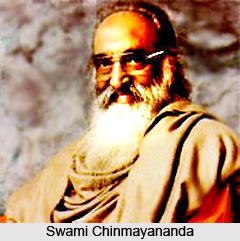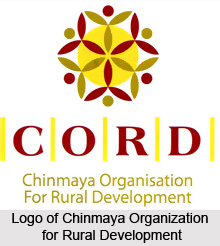 Swami Chinmayananda was born on 8th May 1916 in Ernakulam in Kerala. Initially his name was Balakrishna Menon. He had spread the message of Vedanta. His Chinmaya Mission has over three hundred centres in India and all over the world.
Swami Chinmayananda was born on 8th May 1916 in Ernakulam in Kerala. Initially his name was Balakrishna Menon. He had spread the message of Vedanta. His Chinmaya Mission has over three hundred centres in India and all over the world.
Education of Swami Chinmayananda
He was a student of Swami Sivananda at Rishikesh, who founded the Divine Life Society. He was advised by Swami Sivananda to study under Swami Tapovan Maharaj in Uttarkashi in the Himalayas.
He studied Science at Maharaja`s College at Ernakulam. Thereafter he pursued liberal Arts at St. Thomas College in Thrissur. He graduated from Madras University in 1939. Then he went on to graduate in English literature from Lucknow University.
Participation of Swami Chinmayananda in Freedom Movement
He participated in the Quit India Movement in 1942. He distributed pamphlets and wrote speeches. He stayed in Kashmir for the whole year in 1943. He left Kashmir for Delhi but on the way he saw that the British Police were searching for him. He ran away from the bus and on the way he saw a British Military Intelligence Communication Centre. He disguised as a young man looking for a job. He was hired as a machine operator for relaying coded messages. He worked for eight months and left the job and again participated in the Freedom Movement, thinking that the British Police had forgotten him after two years. However he was caught and put into a cold, dark cell with others.
 He also fell ill with typhus and thinking him to be dead he was laid on road. After some time a woman thinking him to be his own son took him to her home. He recovered after several weeks. Thereafter he caught a train to Baroda.
He also fell ill with typhus and thinking him to be dead he was laid on road. After some time a woman thinking him to be his own son took him to her home. He recovered after several weeks. Thereafter he caught a train to Baroda.
Initiation of Swami Chinmayananda
Balan worked for The National Herald. He went to meet Swami Shivananda at Ananda Kutir as he planned to write an article critical of Hindu monks. However his life changed forever and he became interested in the Hindu spiritual path. He took priest hood from Swami Sivananda on shivaratri on February 25, 1949 and was given the name Swami Chinmayananda Saraswati. He stayed at Rishikesh for several years and was sent to study under Swami Tapovan Maharaj in the Himalayas.
He started the tradition of Jnana Yagnas in an effort to spread the message of Gitta and the Upanishads. He had done almost 690 Jnana Yagna.
Chinmaya Mission
In 1953 along with his closest disciples he laid the foundation of the Chinmaya Mission. During his forty years of travelling and teaching he opened numerous centres and ashrams worldwide. He also built many schools, hospitals, nursing homes and clinics. He also played a major role in renovation of many temples. He also created a rural development project known as the Chinmaya Organization for Rural Development or CORD.
He died on 3 August 1993 in San Diego, California after suffering from his fourth heart attack. His legacy is carried forward through the international organization called the Chinmaya Mission. This mission serves his vision and is also making Vedanta accessible to everybody irrespective of age, nationality or caste.









